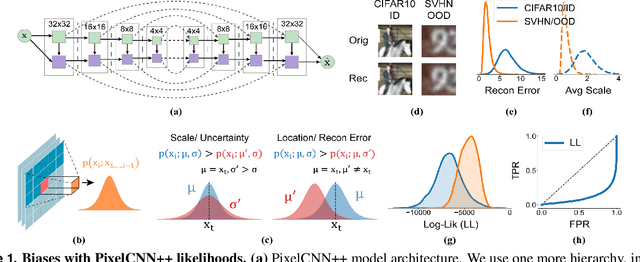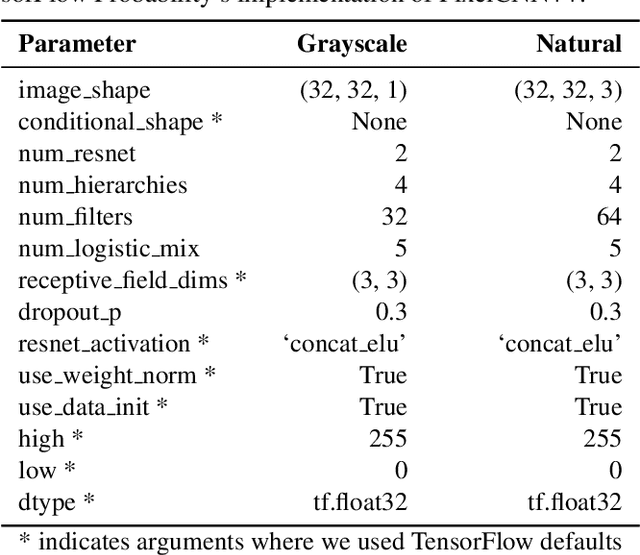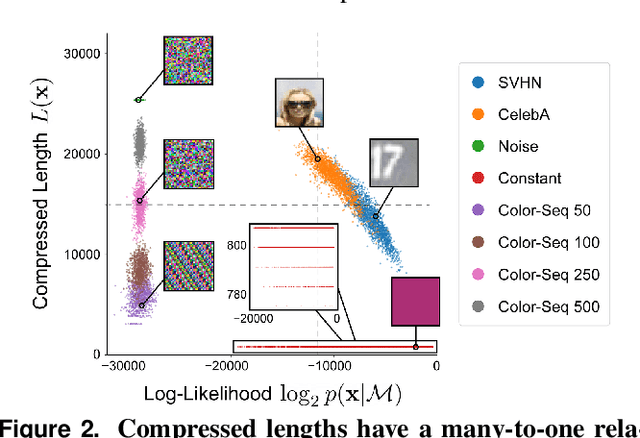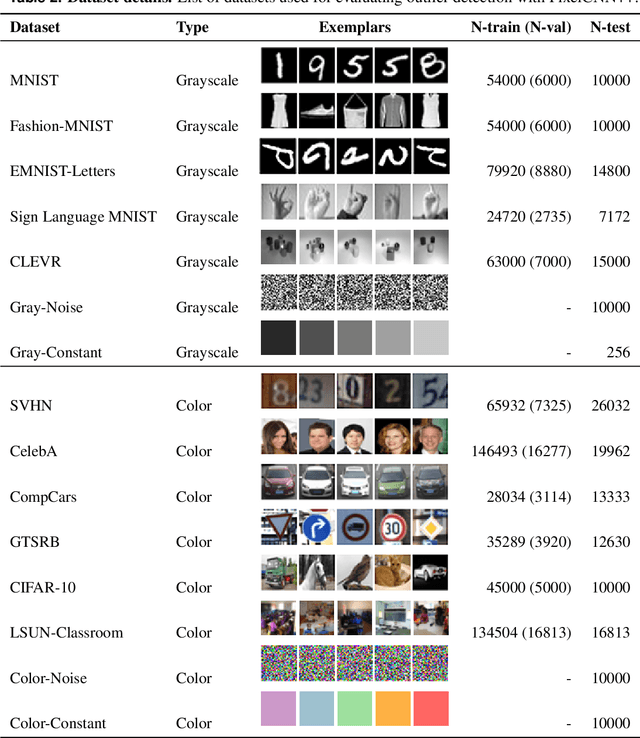Barath Mohan Umapathi
Shaken, and Stirred: Long-Range Dependencies Enable Robust Outlier Detection with PixelCNN++
Aug 29, 2022



Abstract:Reliable outlier detection is critical for real-world applications of deep learning models. Likelihoods produced by deep generative models, although extensively studied, have been largely dismissed as being impractical for outlier detection. For one, deep generative model likelihoods are readily biased by low-level input statistics. Second, many recent solutions for correcting these biases are computationally expensive or do not generalize well to complex, natural datasets. Here, we explore outlier detection with a state-of-the-art deep autoregressive model: PixelCNN++. We show that biases in PixelCNN++ likelihoods arise primarily from predictions based on local dependencies. We propose two families of bijective transformations that we term "shaking" and "stirring", which ameliorate low-level biases and isolate the contribution of long-range dependencies to the PixelCNN++ likelihood. These transformations are computationally inexpensive and readily applied at evaluation time. We evaluate our approaches extensively with five grayscale and six natural image datasets and show that they achieve or exceed state-of-the-art outlier detection performance. In sum, lightweight remedies suffice to achieve robust outlier detection on images with deep generative models.
 Add to Chrome
Add to Chrome Add to Firefox
Add to Firefox Add to Edge
Add to Edge